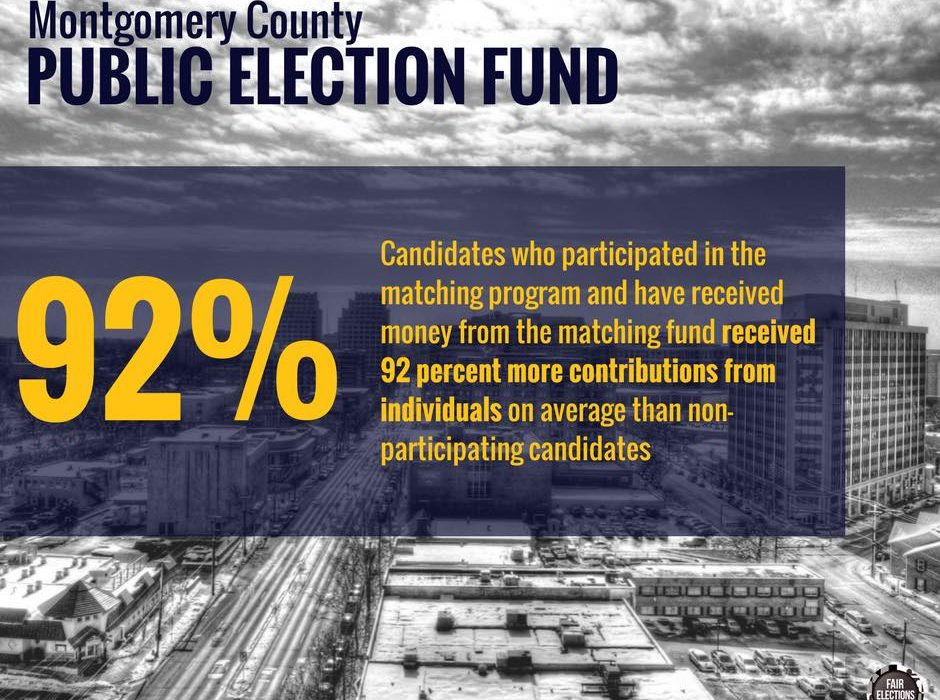Report
Fair Elections in Montgomery County

Early evidence suggests that the small donor program is working.
“Big money” – the large donations that come from a few mega-donors and special interests – dominates current American politics, shaping everything from who runs for office to a candidate’s ability to communicate their message to the public.
But it doesn’t have to be this way. Around the country, cities, counties and states are taking action to fight back against large donors’ dominance of politics. One such effort is the Fair Elections law adopted in Montgomery County, MD, which provides candidates for county-level positions with matching funds if they agree to accept contributions only from small dollar donors.
This report analyzed fundraising data released after the first reporting deadline for candidates in the 2018 county elections. Candidates participating in the small donor matching program are raising money from more individual people than those who are not participating. Our review of the data concluded that:
- Candidates who participated in the matching program and have received money from the matching fund received 92 percent more contributions from individuals on average than did non-participating candidates (611 vs. 319);
- Candidates in the matching program raised 58 percent more of their contributions from small donors (99.5 percent vs. 63 percent);
- Candidates who have qualified for matching dollars collected, in aggregate, almost 12 times as much of their campaign funds from small dollar donors as did candidates who are not participating in the program. Small donations accounted for 94 percent of total fundraising dollars raised by candidates receiving matching funds, versus only 8 percent for those not participating in the program.
Early evidence suggests that the small dollar donor program is working. Other counties, cities and states should look to Montgomery County as an example of how to take effective and substantial action on campaign finance reform.
